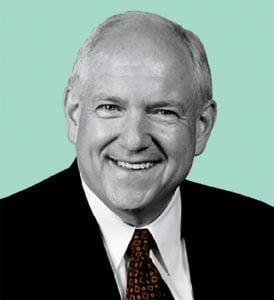 As unemployment has soared, accompanied by salary or benefit rollbacks from many employers, millions of people are under financial stress that most people are simply not prepared to manage.
As unemployment has soared, accompanied by salary or benefit rollbacks from many employers, millions of people are under financial stress that most people are simply not prepared to manage.
I was recently asked what benefit I would recommend adding to an employer's portfolio in light of the COVID-19 pandemic. My answer was that financial wellness benefits are now more important than ever. As unemployment has soared, accompanied by salary or benefit rollbacks from many employers, millions of people are under financial stress that most people are simply not prepared to manage.
Financial wellness needs span the generations. As an older baby boomer, I remember my own experiences. We hear a lot about members of Generation Z and millennials who have college loan debt, which is nothing new. When I went to college, I paid my way through a combination of scholarships, college jobs and loans. I never had more than two weeks when I wasn't working at least part-time, and over winter break and summers, I worked full-time every year. I still had to borrow some money and it wasn't easy to repay the debt, but I did.
Related: COVID-19 threatening Americans' shaky financial security
 Marty Traynor is an Omaha-based consultant in the benefits field.
Marty Traynor is an Omaha-based consultant in the benefits field.Once out of college, I worked a succession of full-time jobs in the insurance and benefits business until I retired from Mutual of Omaha last spring. Since then, I've done some independent consulting. During my career, I faced the usual sources of financial stress, starting with repaying college loan debt and planning major purchases like a car. After getting married, my wife and I saved to buy and furnish a home, and faced the expense of raising four children.
When we started a family, we went from two incomes to one because my wife and I decided she would be a stay-at-home mom, even though she had been making more money per year than me. So, we went through the next level of financial wellness needs: planning and budgeting for big expenditures, trying to stay reasonably debt free, putting aside some money for the kids' college, and managing our finances through the exigencies of life.
The biggest source of stress today is losing a paycheck; did we ever go through that? Yes, when our two oldest were in high school. For six months, our insurance was via COBRA and I had to cash in an IRA, among other sacrifices.
What about retirement? Well, after 51 years working in the insurance and benefits business, we have our 401(k) money plus savings and investments. We are relatively lucky compared with most people. If all my wife and I had for retirement income was Social Security, our household income would be under the federal poverty level. We've managed to be debt free and are able to live in reasonable comfort.
But there's still insecurity about how long our investment money will last, given the fallout from the pandemic. We still have worry that the assets we have may not be sufficient.
So, there's evidence of the need for financial wellness, based on my own life story. Over the years, I could have used help in:
1. Repaying college loans. 2. Budgeting family expenses and major purchases. 3. Planning for children's education. 4. Paying for children's education. 5. Managing finances after job loss. 6. Saving for retirement. 7. Investing and planning to make a retirement fund last for a lifetime.
That's why people need financial wellness tools. It's our responsibility to meet that need and help employers provide the benefits their employees deserve.
© 2025 ALM Global, LLC, All Rights Reserved. Request academic re-use from www.copyright.com. All other uses, submit a request to [email protected]. For more information visit Asset & Logo Licensing.







